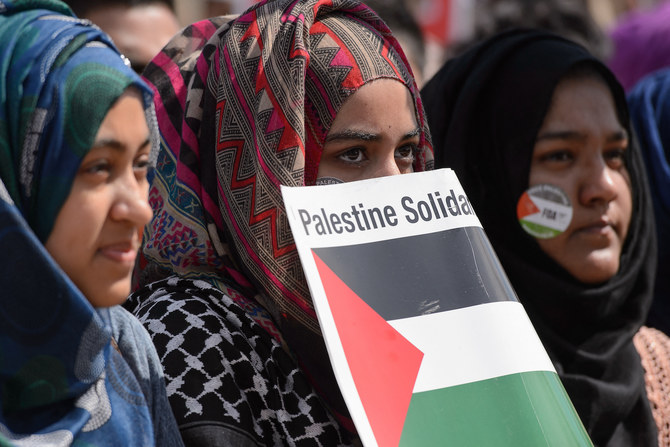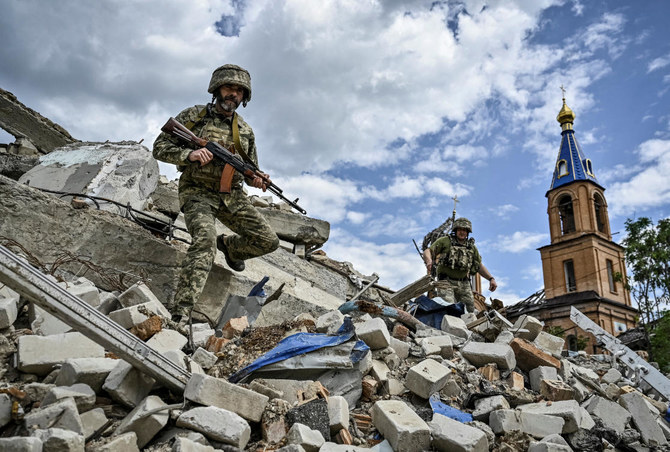LONDON: An enormous rise in Islamophobic incidents against the backdrop of the Israel-Hamas war has led many Muslims in the UK to fear leaving their homes after dark, The Independent reported on Sunday.
Many of the Islamophobic incidents have involved people being targeted over their support for Palestine as the war in Gaza continues.
Muslims who spoke to The Independent said they had bricks thrown through their windows for displaying the Palestinian flag, and a 17-year-old was questioned by his teachers after he displayed a Palestinian badge on his bag at school.
Islamophobia Response Unit, a charity dedicated to supporting victims of Islamophobia, said there was a 365 percent increase in reports of Islamophobia in October 2023, following Hamas’ attack on Israel that month.
“Since October 2023, IRU has seen a sustained increase in reports to the unit,” said IRU CEO Majid Iqbal.
“It is clear that this is now developing into a long-term trend and is having a profound impact on those affected by it. IRU calls on the press and politicians to not demonize legitimate Palestinian activism and, by extension, British Muslims, to avoid feeding into the serious societal problem of Islamophobia,” he said.
Tell MAMA, another body that records anti-Muslim hate incidents, said there were 2,010 Islamophobic incidents between Oct. 7 and Feb. 7, more than triple the 600 reported during the same period the year before.
The figures were released in the same week that Tory MP Lee Anderson was suspended by the Conservative Party after making comments about London Mayor Sadiq Khan that have been widely condemned as Islamophobic.
Anderson told GB News on Friday that “Islamists” had “got control” of the mayor of London and the capital city.
“I don’t actually believe that the Islamists have got control of our country, but what I do believe is they’ve got control of Khan and they’ve got control of London … He’s actually given our capital city away to his mates,” the former Tory deputy chairman said.
Of the cases reported to IRU, a 17-year-old Londoner said he was interrogated by teachers about his faith and “his understanding of Hamas” after he put a Palestinian badge on his school bag.
The Year 13 student said he felt targeted because he was Muslim, which triggered an anxiety attack and led to exam failure.
“The numerous instances of being pulled out whilst studying to remove my badge made me feel like I was targeted because I was a Muslim, which made me feel like I was doing something wrong,” the boy said.
“This feeling of being targeted intensified following the intimidating interrogation, which I was subjected to,” he added.
A 32-year-old doctor said he has been too scared to leave his home after an attack he believes stemmed from his support for Palestine.
He was awoken on Feb. 5 after a large rock smashed through a window at his Manchester home, which displayed a Palestinian flag. He said he was unable to sleep and took two weeks off work as a result of the incident.
“This event has been extremely traumatic and has had a significant impact on my well-being,” he told The Independent.
“I am not sleeping; I just pace around until 4 or 5 a.m. because I am too scared to sleep in the property. I no longer leave the house after sunset, as I am too frightened.
“I will soon be returning to work after two weeks off sick with stress, but I am very concerned about the impact this event will have on my professional performance as a doctor. I do not know how I can work with patients whilst I am this sleep-deprived,” he added.






















